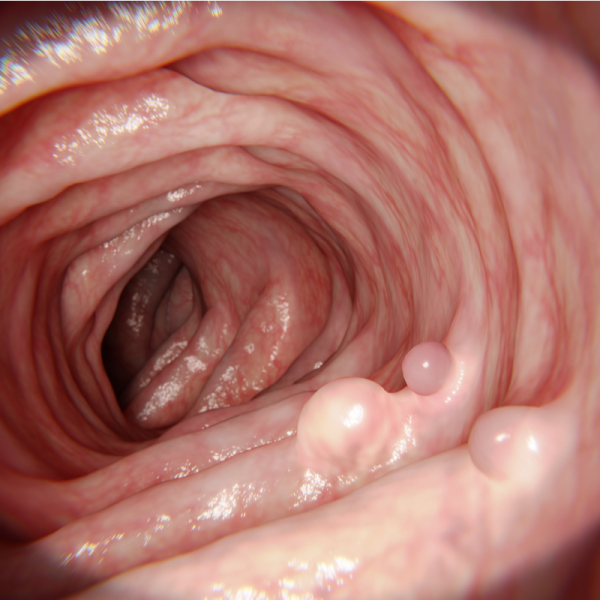
What is Gardner syndrome?
Gardner's syndrome is a rare hereditary disease that causes the development of mucosal growths (colonic polyps), multiple soft tissue tumours and benign bone tumours. Every year, approximately 10,000 newborns are diagnosed with Gardner's syndrome, which is caused by Familial Adenomatous Polyposis (FAP). In this case, mucosal polyps can develop in hundreds to thousands of cases in the large intestine (colon). In addition, hyperdontia (excess teeth), gastric polyps and epidermoid cysts can also be attributed to Gardner's syndrome.
How does Gardner syndrome develop?
Gardner syndrome is usually based on autosomal dominant inheritance, which means that usually at least one parent has Gardner syndrome. In 20 percent of all cases, Gardner syndrome can also be caused by a spontaneous mutation of the adenomatous polyposis coli gene (APC gene). This disturbs the signal transduction in the intestinal epithelial cells, which in turn can contribute to the formation of intestinal polyps and extraintestinal tumours.
How does Gardner syndrome manifest itself?
Patients with Gardner's syndrome develop more than 100 polyps in the colon and rectum over a long period of time. However, it is also possible for polyps to form in the upper digestive tract, for example in the stomach. In addition, more than 75 per cent of all those affected suffer from osteomas of the skin, which form mainly in the head area. fifty per cent of all patients also complain of epidermoid cysts. Soft tissue tumours such as fibromas, neurofibromas, desmoid tumours, pilomatrixomas, lipomas and leiomyomas can also be attributed to Gardner's syndrome. It is typical for Gardner's syndrome that the bone and skin changes manifest themselves before the development of gastrointestinal polyps.
How is Gardner syndrome diagnosed?
Gardner syndrome can be diagnosed by the usual imaging procedures of a gastroscopy (gastro-duodenoscopy) and/or a colonoscopy (colonoscopy). It can also be diagnosed by testing for the autosomal dominant gene for familial polyposis coli (APC) and by oral findings of supernumerary teeth.
How is Gardner syndrome treated?
Gardner syndrome, as well as familial adenomatous polyposis (FAP), carries a 100 per cent chance of developing colorectal cancer. Gardner's syndrome must therefore be treated by total colectomy, i.e. the complete surgical removal of the large intestine (colon). After treatment, the patient should also attend regular check-ups, such as colonoscopy, with a gastroenterologist. In Gardner's syndrome, early treatment, such as colectomy, is also possible, for example, to prevent the development of colorectal carcinoma.
| Pathogen | Source | Members - Area |
|---|---|---|
| Gardner sydrome | EDTFL | As a NLS member you have direct access to these frequency lists |
